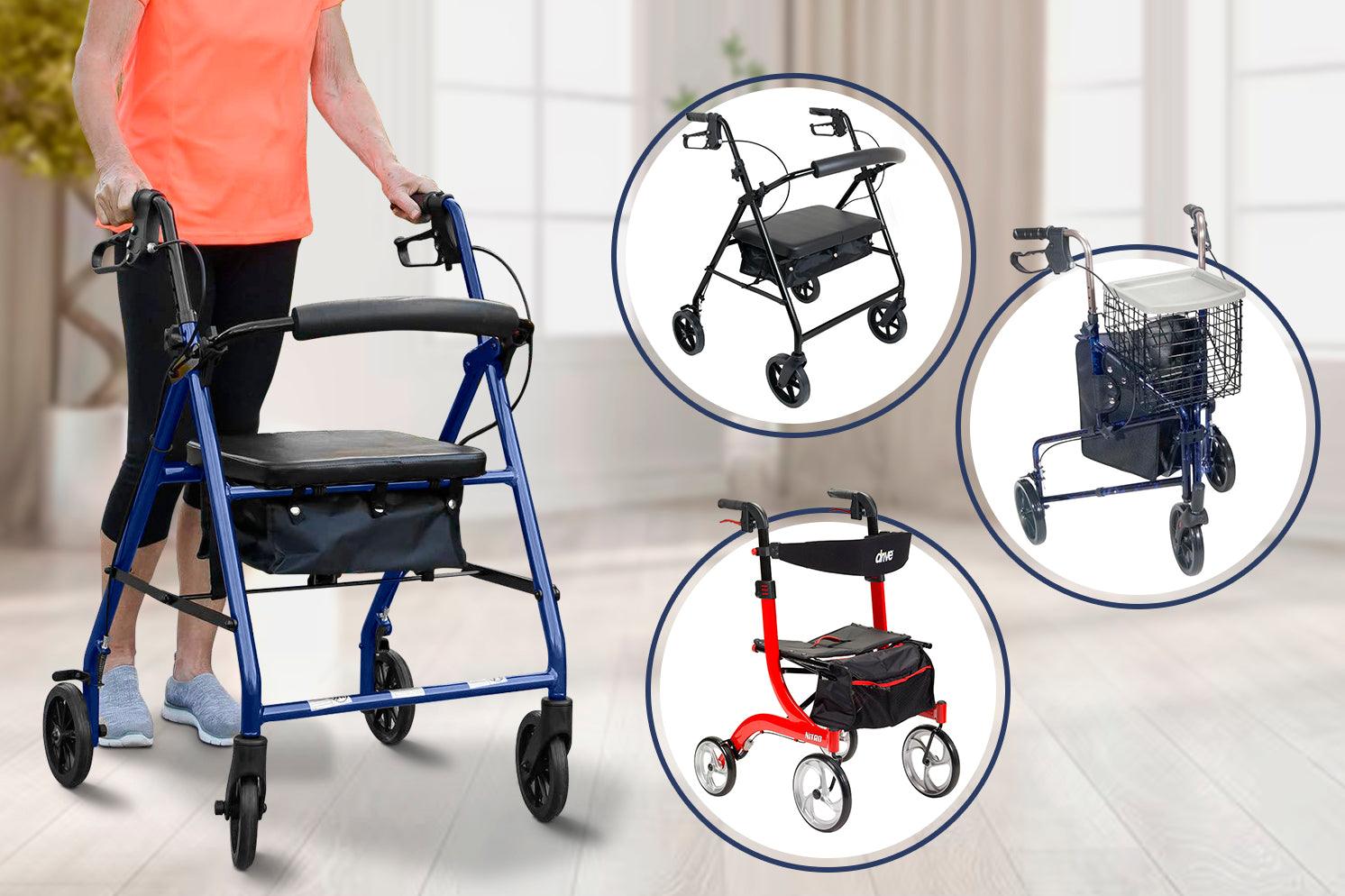A rollator is a type of mobility aid designed to help people who need support while walking. Unlike traditional walkers, rollators come equipped with wheels, making them easier to maneuver. They typically feature a built-in seat, a storage basket, and hand brakes for added safety. Rollators are particularly beneficial for individuals with limited mobility due to age, injury, or a medical condition, offering a convenient and practical way to maintain independence.
Rollator vs. Walker: Which is Best for You?
When considering mobility aids, you might find yourself comparing a rollator vs. a walker. While both serve the same fundamental purpose, their designs and functionalities differ significantly.
- Rollator: Equipped with wheels, a rollator is easier to push and steer. It's ideal for outdoor use and longer distances. The built-in seat allows users to rest when needed, and the hand brakes ensure control and safety.
- Walker: A traditional walker does not have wheels, providing maximum stability (although some models do have 2 front wheels). It requires lifting with each step, which can be challenging for some users. Walkers are better suited for indoor use or short distances.
Choosing between a rollator and a walker depends on your specific needs. If you require more support and stability, a walker might be the better choice. However, if you value mobility and the convenience of a seat, a rollator could be ideal.
Types of Rollators
Rollators come in various types, each designed to meet different needs and preferences. Let's explore some of the most common types.
Standard Rollators
Standard rollators are versatile and suitable for most users. They typically have four wheels, a padded seat, and a storage basket. These rollators are ideal for individuals who need a reliable and comfortable mobility aid for everyday use.
Three-Wheel Rollators
Three-wheel rollators offer increased maneuverability due to their design. They are lighter and more compact, making them perfect for navigating tight spaces. However, they may provide less stability than four-wheel models.
Bariatric Rollators
What is a bariatric rollator? Bariatric rollators are specifically designed for individuals who require a higher weight capacity. These rollators are built with sturdy frames and wider seats to accommodate users comfortably. They offer the same features as standard rollators but with added durability.
Compact Rollators
Compact rollators are lightweight and easily foldable, making them ideal for travel. They are designed for users who need a portable mobility aid without compromising on functionality.
What is a Rollator Used For?
Rollators serve various purposes and can be incredibly beneficial for different scenarios.
- Daily Mobility: Rollators provide support for everyday walking, whether indoors or outdoors.
- Rehabilitation: After surgery or an injury, rollators can aid in the rehabilitation process by offering stability and reducing the risk of falls.
- Exercise: Using a rollator encourages physical activity, which is essential for maintaining overall health and fitness.
- Independence: Rollators enable individuals to perform daily tasks independently, enhancing their quality of life.
Are Rollators FSA/HSA Eligible?
Yes, rollators are generally eligible for purchase with FSA (Flexible Spending Account) or HSA (Health Savings Account) dollars. These accounts allow you to use pre-tax funds for medical expenses, including mobility aids like rollators. To confirm eligibility, you should check with your FSA or HSA plan provider.
For a wide selection of rollators that are FSA/HSA eligible, visit Shop Home Med’s rollator’s page.









